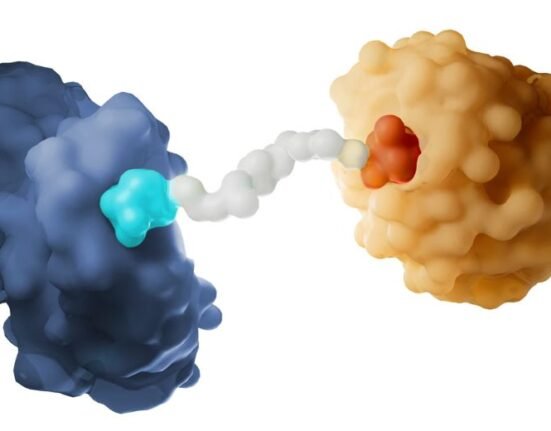HQ Team
May 15, 2025: A recent meta research by Dr Salvatore Cortellino and Professor Antonio Giordano, President of the Sbarro Health Research Organization (SHRO) and molecular oncologist at Temple University and the University of Siena, highlights the importance of vitamins and dietary interventions in cancer prevention and treatment.
Their research examines the scientific evidence behind vitamins, dietary supplements, and popular diets, such as intermittent fasting and the ketogenic diet, that are promoted for vitamin-deficient cancer sufferers. They studied clinical studies, sourced from PubMed and ClinicalTrials.gov databases, in an attempt to separate fact from fiction while providing evidence-based recommendations.
Vitamins in cancer prevention and therapy
Vitamins are essential micronutrients that support enzymatic functions, immune responses, and oxidative stress regulation. Deficiencies in vitamins A, B-complex, C, D, E, and K have been linked to increased cancer risk due to their roles in DNA repair, epigenetic regulation, and inflammation control. However, while some preclinical studies suggest that high-dose vitamin supplementation may inhibit tumor growth, clinical trials have not consistently confirmed these benefits.
For instance, vitamin D has been extensively studied for its potential anticancer properties, particularly in colorectal and breast cancers. Epidemiological data suggest that individuals with higher vitamin D levels have a reduced risk of certain cancers. However, randomized controlled trials (RCTs) have not demonstrated a significant reduction in cancer incidence with vitamin D supplementation alone. Similarly, vitamin C, often touted for its antioxidant effects, shows promise in preclinical models when administered intravenously at high doses, but oral supplementation has not replicated these results in clinical settings.
Excessive vitamin intake can also be harmful. Fat-soluble vitamins (A, D, E, K) accumulate in tissues and may reach toxic levels, while high doses of certain B vitamins have been associated with increased lung cancer risk in smokers. Thus, supplementation should only be considered in cases of confirmed deficiency, as a balanced diet typically provides adequate micronutrients.
Impact of diet on cancer risk
Dietary patterns significantly influence cancer development. The Western diet—high in processed foods, red meat, and refined sugars—has been linked to obesity, chronic inflammation, and increased cancer risk. Conversely, diets rich in fruits, vegetables, whole grains, and lean proteins, such as the Mediterranean diet, are associated with lower cancer incidence.
Obesity is a well-established risk factor for multiple cancers, including breast, colorectal, and pancreatic cancers. Adipose tissue promotes chronic inflammation, insulin resistance, and elevated levels of growth factors like IGF-1, creating a tumor-friendly microenvironment. Weight management through a balanced diet and physical activity remains one of the most effective preventive strategies.
Popular dietary interventions: Do they work?
Ketogenic Diet :The ketogenic diet, which drastically reduces carbohydrates in favor of fats, has gained attention for its potential to “starve” cancer cells of glucose. Preclinical studies suggest that some tumors rely heavily on glycolysis, making them vulnerable to ketogenic metabolic shifts. However, human trials have shown mixed results. While some cancer patients experience improved energy levels and reduced treatment side effects, there is no conclusive evidence that the ketogenic diet alone can inhibit tumor growth. Moreover, this diet may be unsafe for malnourished patients or those with cachexia, as it can exacerbate muscle wasting.
Intermittent Fasting: Intermittent fasting (IF), which cycles between periods of eating and fasting, has shown promise in animal studies by enhancing chemotherapy efficacy and reducing tumor progression. Proposed mechanisms include improved metabolic regulation, autophagy activation, and reduced oxidative stress. However, clinical data in humans remain limited. Some trials suggest that short-term fasting may reduce chemotherapy side effects, but prolonged fasting in cancer patients—particularly those already experiencing weight loss—could worsen malnutrition and weaken immune function.
Vegan and vegetarian diets: Plant-based diets are rich in antioxidants, fiber, and phytonutrients, which may lower cancer risk. However, clinical studies have not shown that vegan or vegetarian diets significantly outperform other balanced diets like the Mediterranean diet in cancer prevention. Additionally, strict plant-based diets may lead to deficiencies in vitamin B12, iron, and omega-3 fatty acids, necessitating careful planning or supplementation.
The Mediterranean diet: It is characterized by high consumption of olive oil, fish, nuts, whole grains, and vegetables, is consistently associated with reduced cancer risk and improved survival rates. Its benefits are attributed to anti-inflammatory compounds, healthy fats, and a balanced nutrient profile. Unlike extreme dietary interventions, this approach is sustainable and adaptable, making it a practical recommendation for both cancer prevention and supportive care.
The nutraceutical industry: Buyers beware
Despite limited clinical evidence, the supplement industry aggressively markets vitamins and “miracle” diets to cancer patients. Many over-the-counter supplements lack rigorous testing, and their interactions with chemotherapy or radiation therapy remain poorly understood. Regulatory oversight is often insufficient, leading to inconsistent product quality and unsubstantiated health claims. Patients should consult healthcare providers before taking supplements, as some may interfere with treatment or worsen outcomes.
Current evidence does not support the use of high-dose vitamin supplements or extreme dietary interventions as standalone cancer treatments. Instead, experts emphasize: A balanced, varied diet (such as the Mediterranean diet) as the best approach for cancer prevention.
Weight management to reduce obesity-related cancer risks. Personalized nutrition for cancer patients, addressing deficiencies without compromising treatment efficacy. And more rigorous clinical trials to evaluate the long-term effects of dietary interventions in oncology.
While vitamins and dietary strategies play a role in cancer prevention and supportive care, no single supplement or diet can replace conventional treatments. Misleading marketing and unproven claims by the nutraceutical industry underscore the need for stricter regulations. For now, a balanced diet, healthy weight maintenance, and evidence-based medical care remain the most reliable strategies in the fight against cancer. Future research should focus on personalized nutrition approaches tailored to individual genetic, metabolic, and tumor profiles to optimize outcomes.








